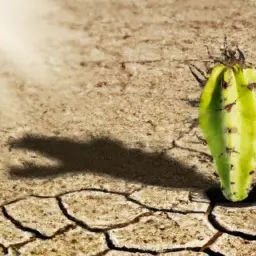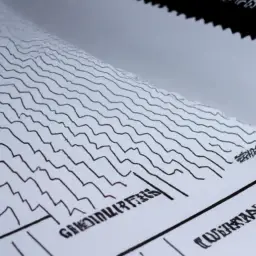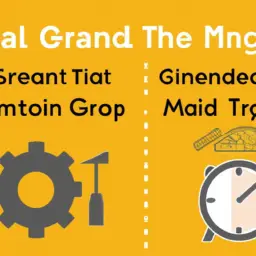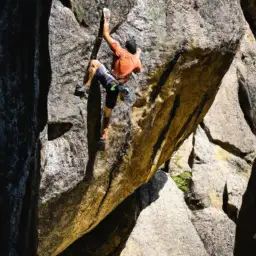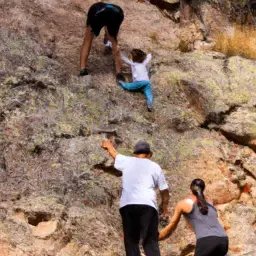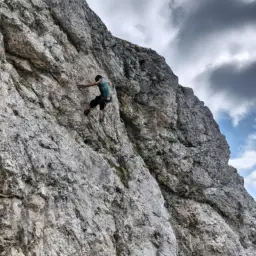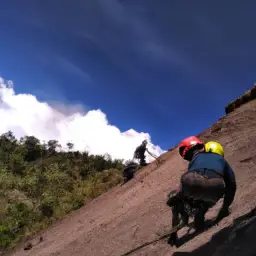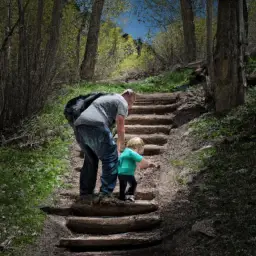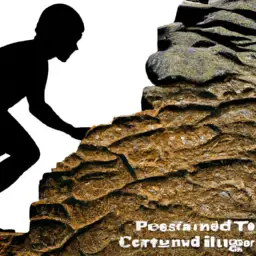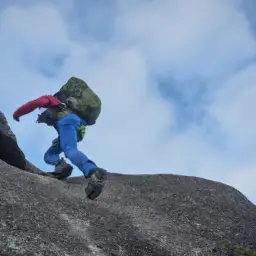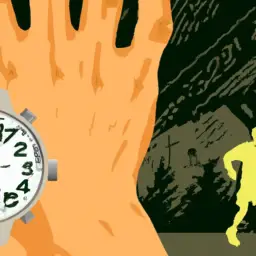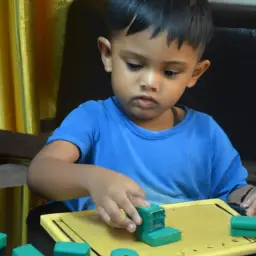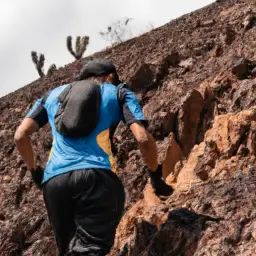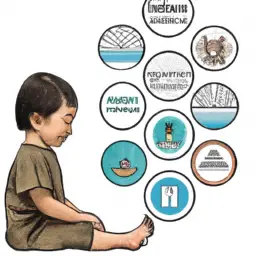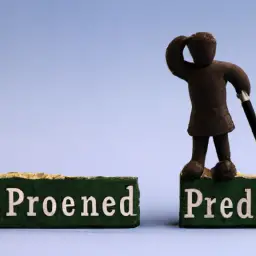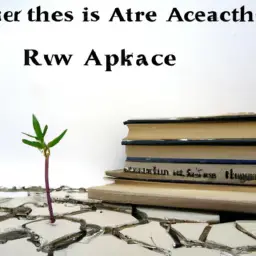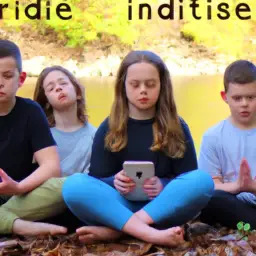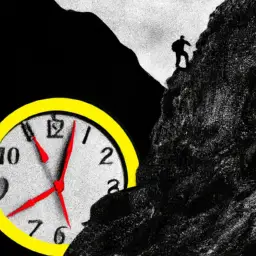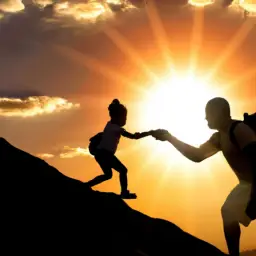Are you looking for ways to develop grit in an environmental context? Whether you’re a seasoned environmentalist or just starting out, developing grit is essential to achieving your goals and making a positive impact on the environment. Grit is the combination of passion and perseverance that allows individuals to overcome challenges and achieve long-term goals. In an environmental context, grit is particularly important due to the complex and multifaceted nature of environmental issues.
To foster grit in an environmental context, you will need to cultivate a growth mindset, develop self-discipline, build resilience, seek support and collaboration, and stay motivated and inspired. These strategies will help you stay focused, maintain a positive attitude, and overcome obstacles in your efforts to make a difference for the environment.
In this article, we will explore 10 effective strategies for fostering grit in an environmental context, so that you can become a more effective environmentalist and make a lasting impact on the world around you.
Key Takeaways
- Developing grit is essential to achieving environmental goals.
- Building resilience is important in bouncing back from setbacks.
- Seeking support and collaboration with like-minded individuals is important in achieving environmental goals.
- Cultivating a growth mindset is important in environmental work.
Understanding the Importance of Grit in an Environmental Context
Don’t underestimate the power of grit in an environmental context – it’s essential for creating lasting change.
Examples of grit in environmental activism can be seen in the work of activists who have been fighting for environmental justice for decades. These individuals have shown persistence in the face of adversity, often putting their safety on the line to speak out against environmental injustices. It’s this kind of grit that has led to the creation of important environmental policies and the protection of natural resources.
But grit isn’t just important for activists. It’s also crucial in sustainability education. Students who possess grit are more likely to persevere through challenges and setbacks, ultimately leading to a deeper understanding and appreciation of environmental issues.
By fostering a culture of grit in sustainability education, we can empower future generations to tackle environmental challenges with resilience and determination.
Cultivating a Growth Mindset
You can develop a growth mindset to increase your resilience and adaptability in challenging environmental situations. Overcoming obstacles and embracing challenges are essential in cultivating a growth mindset in environmental work. It involves seeing failures and setbacks as opportunities for growth and learning.
To help you develop a growth mindset, here are some tips:
- Embrace challenges and take risks
- Focus on effort and progress, not just outcomes
- Learn from criticism and feedback
The power of positive self-talk and visualization is also crucial in developing grit. Instead of allowing negative thoughts to drag you down, replace them with positive affirmations. Visualize yourself overcoming challenges, achieving your goals, and succeeding in your environmental work.
This positive mindset can help you stay motivated and focused on your objectives, even in the face of adversity. By adopting a growth mindset and harnessing the power of positive thinking, you can develop the grit and resilience needed to thrive in any environmental context.
Developing Self-Discipline
Developing self-discipline requires a conscious effort to cultivate habits that prioritize long-term goals over short-term gratification. This means creating habits that are sustainable and align with your values.
One effective strategy is to break down your goals into smaller, more manageable tasks that can be accomplished on a daily or weekly basis. By doing this, you can create a sense of momentum and progress, which can be a powerful motivator.
Overcoming procrastination is another important aspect of developing self-discipline. Procrastination can be a major obstacle to achieving your goals, as it often leads to last-minute scrambling and stress.
To overcome procrastination, it’s important to identify the root causes of your procrastination and address them head-on. This may involve setting specific deadlines, breaking down tasks into smaller steps, or using a timer to stay focused.
Ultimately, developing self-discipline requires a willingness to put in the effort and make the necessary changes to create habits that support your long-term goals.
Building Resilience
So, you want to build resilience? That’s great! It means you’re ready to learn how to bounce back from setbacks, deal with criticism, and handle rejection like a champ.
By developing resilience, you’ll be able to overcome obstacles and challenges with greater ease and confidence.
So let’s dive in and explore some effective strategies for building resilience!
Learning to Bounce Back from Setbacks
When setbacks occur, it’s important to remember that bouncing back is a skill that can be learned and developed. It’s not about avoiding obstacles or challenges altogether, but rather about embracing them and using them as opportunities to learn and grow.
Here are five strategies for bouncing back from setbacks:
-
Reframe the situation: Instead of seeing a setback as a failure, reframe it as a learning opportunity. Ask yourself what you can learn from the experience and how you can use that knowledge to improve in the future.
-
Focus on what you can control: When setbacks happen, it’s easy to feel powerless. Instead of dwelling on what you can’t control, focus on what you can. Identify the actions you can take to move forward and start taking them.
-
Practice self-compassion: Be kind to yourself and remember that setbacks happen to everyone. Don’t criticize yourself for mistakes or failures, but instead treat yourself with the same kindness and compassion you would offer a friend.
-
Seek support: Don’t be afraid to reach out to others for help and support. Whether it’s a friend, family member, or mentor, having someone to talk to can help you gain perspective and find solutions to the challenges you’re facing.
-
Stay resilient: Remember that setbacks are a normal part of the learning process. Keep going, stay resilient, and keep striving towards your goals. With time and effort, you can overcome any obstacle that comes your way.
By applying these strategies, you can learn to bounce back from setbacks and become more resilient in the face of challenges. Overcoming obstacles takes practice, but with perseverance and a growth mindset, you can develop the grit and resilience you need to succeed in any environment.
Dealing with Criticism and Rejection
Receiving criticism and experiencing rejection can be tough, but it’s important to remember that they can also be opportunities for growth and self-improvement. Dealing with failure is an important part of developing grit and resilience.
When faced with criticism or rejection, it’s important to take a step back and assess the situation objectively. Try to see it as an opportunity to learn and improve, rather than a personal attack. Take the feedback seriously and use it to make positive changes.
Overcoming negativity is another key aspect of dealing with criticism and rejection. It’s easy to get caught up in negative thoughts and emotions, but it’s important to remember that these setbacks are only temporary. Focus on the positive and take action to address the issues at hand.
Surround yourself with supportive people who can offer encouragement and help you stay motivated. With the right mindset and strategies in place, you can turn criticism and rejection into valuable learning experiences that will help you grow and succeed in the long run.
Seeking Support and Collaboration
Collaborating with like-minded individuals and seeking support from those who share your passion can be a powerful motivator to persevere through challenges and achieve your environmental goals. Partnering with allies who have similar values and goals can help you develop new ideas, overcome obstacles, and find new solutions to complex problems. By working together, you can share resources, knowledge, and skills to make a greater impact than you could on your own.
In addition to finding allies, seeking out mentors can also be helpful in developing grit and resilience. Mentors can provide guidance, advice, and support as you work towards your goals. They can also offer a different perspective and help you see challenges as opportunities for growth and learning. By building relationships with mentors, you can gain valuable insights and skills that will help you overcome obstacles and achieve success in your environmental endeavors.
| Benefits of Partnering with Allies | Benefits of Finding Mentors | ||
|---|---|---|---|
| Access to new ideas and solutions | Guidance and support from experienced individuals | ||
| Sharing of resources and skills | Different perspective on challenges | ||
| Increased motivation and accountability | Opportunities for growth and learning | ||
| Greater impact and reach | Development of new skills and knowledge | Enhanced creativity and innovation. |
Staying Motivated and Inspired
To stay motivated and inspired, you can try setting small goals and celebrating your progress along the way. When you find purpose in what you’re doing, it becomes easier to stay motivated.
It’s important to identify why you’re doing what you’re doing and how it serves a greater purpose. This can be as simple as recognizing that your actions contribute to a cleaner environment or a more sustainable future. Once you’ve found your purpose, set goals that align with it. These goals should be challenging enough to push you out of your comfort zone, but also achievable with effort.
To keep yourself motivated and inspired, it can also be helpful to surround yourself with like-minded individuals who share your passion for environmental change. Seek out a community of people who are working towards similar goals and support each other’s efforts. Attend events or join organizations where you can learn from others and find inspiration.
It’s also important to take breaks and allow yourself time to recharge. This can mean taking a walk in nature, practicing meditation, or engaging in a hobby that brings you joy. Remember that staying motivated and inspired is a journey, and it’s okay to take small steps towards your goals. Celebrate your progress and keep moving forward.
Frequently Asked Questions
How does grit differ in an environmental context compared to other contexts?
When it comes to grit, the environment can make a big difference. While some people may have a natural inclination towards perseverance and resilience, others may need more support and encouragement to develop these qualities.
This is where nature vs. nurture comes into play. The environment we grow up in can have a significant impact on our ability to develop grit.
Environmental factors like access to resources, exposure to adversity, and the quality of support systems can all play a role in shaping our ability to persevere in the face of challenges.
For example, growing up in a disadvantaged community with limited resources can make it harder to develop grit than growing up in a more affluent community with access to more opportunities. Therefore, it’s important to consider these environmental factors when trying to foster grit in individuals.
Can grit be developed in individuals who have never displayed it before?
Yes, grit can be developed in individuals who have never displayed it before.
The debate between nature vs. nurture has been ongoing for decades, but research suggests that grit can be nurtured through various methods.
Adversity is a significant factor that impacts an individual’s grit, as it provides an opportunity for growth and development.
By exposing individuals to challenging situations and teaching them coping mechanisms, resilience, and perseverance, it’s possible to develop grit.
Additionally, providing positive feedback, setting achievable goals, and encouraging a growth mindset can also contribute to the development of grit.
With consistent effort and support, individuals can learn to cultivate grit and achieve their goals.
How can individuals overcome setbacks and challenges when trying to develop grit?
To develop grit, you need to shift your mindset and embrace the challenges that come your way. This means you no longer see setbacks as failures, but as opportunities to learn and grow. You need to see the bigger picture and understand that the journey to achieving your goals is not always going to be easy.
Persistence training is also key. When faced with challenges, you need to keep pushing forward and not give up. Set small achievable goals and celebrate your successes along the way.
Remember that grit is not something you’re born with, but something you can develop over time with practice and determination.
Are there any negative consequences to developing grit in an environmental context?
When it comes to developing grit in an environmental context, there is the potential for negative effects if balance is not maintained.
While grit can be a valuable trait for achieving goals and overcoming challenges, it can also lead to burnout and neglect of other important areas of life.
It’s important to remember that developing grit is not the only factor in success and that taking breaks and prioritizing self-care are crucial for long-term well-being.
It’s all about finding a balance and ensuring that grit is not the sole focus at the expense of everything else.
How can individuals balance the need for grit with the need for self-care and avoiding burnout?
When it comes to balancing grit and self-care, there are a few strategies you can try. Self-care strategies are crucial for avoiding burnout and maintaining your overall well-being. It’s important to prioritize rest, relaxation, and time for yourself, even when you’re striving for a goal.
You might also consider setting boundaries with others to protect your energy and prevent burnout. At the same time, grit can be a valuable trait for achieving your goals and persevering through challenges. To balance grit and self-care, try setting realistic goals and breaking them down into smaller, manageable steps. This can help you avoid overwhelming yourself and burning out.
Additionally, remember to celebrate your successes and give yourself credit for your hard work, rather than constantly striving for more. By finding a balance between grit and self-care, you can achieve your goals while still taking care of yourself.
Conclusion
So there you have it, 10 effective strategies for fostering grit in an environmental context.
By understanding the importance of grit, cultivating a growth mindset, developing self-discipline, building resilience, seeking support and collaboration, and staying motivated and inspired, you can become a more effective and impactful environmental advocate.
Remember that grit is not just about persistence and hard work, but also about passion and purpose.
When you have a clear vision of what you want to achieve and why it matters, you’re more likely to stay committed and overcome obstacles.
So keep these strategies in mind as you work towards your environmental goals, and never give up on your dreams of creating a better world for all.









